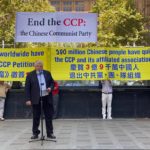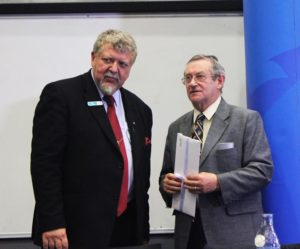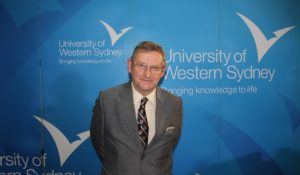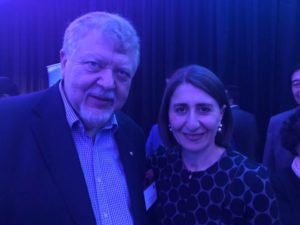It is over 40 years since I have established the Committee for Family Reunions (Komitet Laczenia Rodzin) in Australia. Its history shows a great success of Polish lobby in Australia during the early 1980s when communist Poland was undergoing a major transformation with emergence of Solidarity movement and when many refugees from Poland arrived in Australia.
The Committee was established in late 1980 and its members included Dr Sev Ozdowski (Chair), Dr Martin Krygier, Ms Isabel Lucas and Mr Aleksander Peczalski (Secretary). Mr Jerzy Boniecki allowed to use his postal address (P.O. Box 104, Woollahra, NSW 2025) for correspondence to the Committee and provided some monies for its administrative expenses.
The purpose of the Committee was to facilitate reunion of Polish families. In 1980 many Poles decided to emigrate from Poland and in the 1981–82 period, 5732 Polish settlers arrived at Australia (often after seeking a refugee status in Austria and other Western countries). Initially, some families had decided that the husband/father will migrate first, check the conditions in the settlement country, and if satisfied, invite his family to join him.
However, the communist Poland authorities regarded their “unauthorised” emigration as an offence and breach of Polish passport rules and often punished those who migrated to Australia by not allowing their families to join them. The situation become particularly difficult after martial law was declared in Poland on 13 December 1981.
The unresolved family reunion issue led to major trauma amongst the new Polish settlers in Australia, political demonstrations, including hunger strikes and threats of violence against Polish consular and diplomatic staff in Australia.
The Committee undertook the following actions to address the problem:
. Advertised in the Polish-Australian media and sought support of the Polish diaspora and human rights organizations in Australia for work of the Committee.
. Sought people who needed assistance with family reunion to register with the Committee – some 70-80 individuals registered. Organized letter writing campaign.
. Actively lobbied Australian Parliamentarians and relevant federal authorities to make representations to the Polish communist authorities to allow for family reunion to proceed.
. Liaised extensively with the Minister for Foreign Affairs, Tony Street, and his department.
. Conducted significant media campaign to inform Australians of the situation.
. Made representations to the communist authorities in Poland and their diplomatic/consular representatives in Australia. A meeting of the Committee with Consul Marian Bark took place on 2 May 1981.
. Wrote to Cardinal Stefan Wyszynski.
The Committee work has proven to be very effective as by the end of 1983 families of all those who registered with the Committee were reunited. In early 1984 the Committee ceased all its operations. The Committee archives will be deposited in Emigration Museum, Gdynia, Poland.



